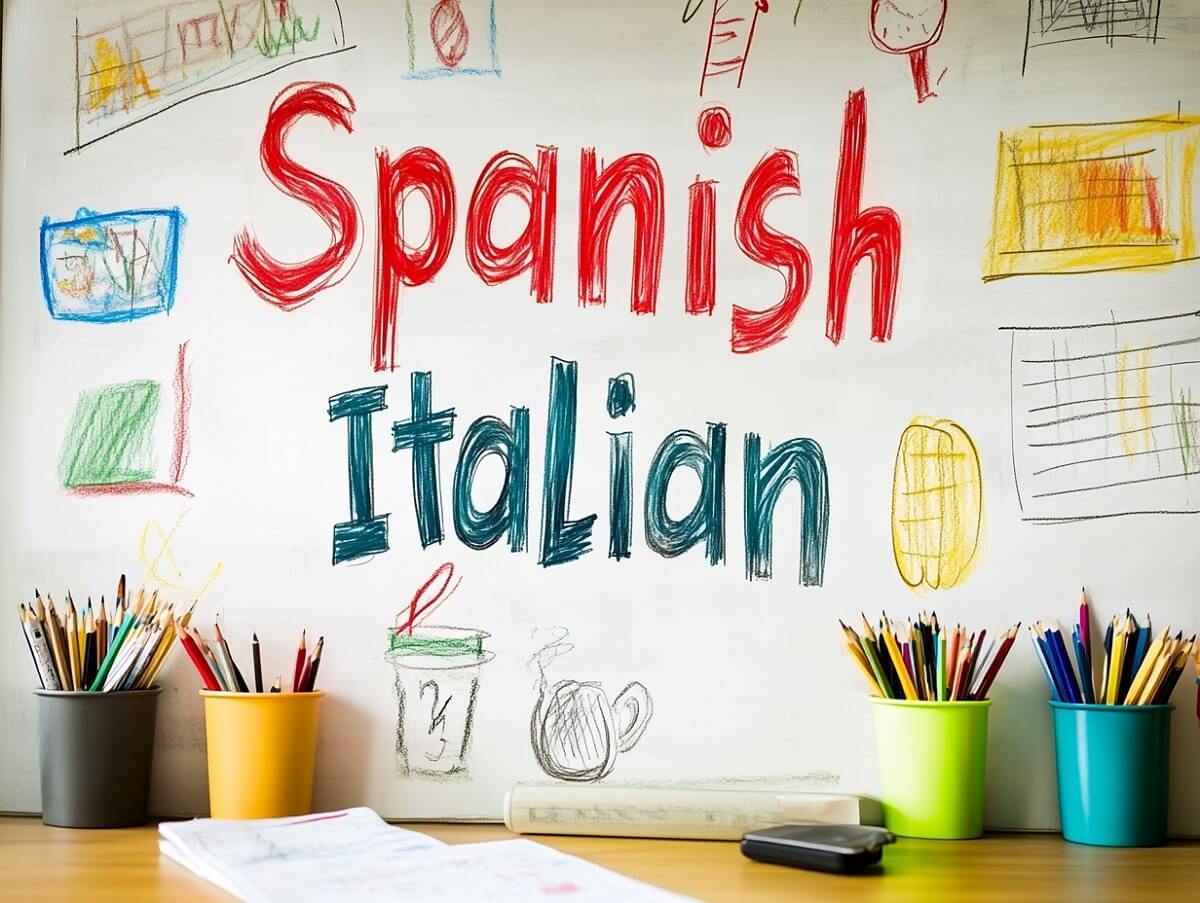
Are you torn between studying Italian and Spanish? Both languages are beautiful, widely spoken, and deeply rooted in rich cultural traditions. Ultimately, the choice of which language to learn comes down to your aspirations, hobbies, and passions. Below are five important factors to help you decide which one might be right for you.
-
Which Language Is More Practical?
In terms of global presence, Spanish wins. Spanish is the world’s second most spoken language by number of native speakers, with more than 500 million native speakers and official language status in 21 nations. It’s extremely helpful for travel, business, and communication in the Americas and Spain.
Italian, by contrast, has around 85 million speakers worldwide, most of whom are located in Italy and Switzerland. Though it may be less practical for international communication, Italian is priceless if you’re interested in Italian culture, art, fashion, or food—or if you’re going to live, work, or study in Italy.
Verdict: If you want a language with broader practical use, choose Spanish. If you’re interested in Italian culture or have Italian heritage, go with Italian.
-
Which Language Is More Easily Learned?
Spanish and Italian are both Romance languages, meaning they have Latin roots and share similar grammar, vocabulary, and pronunciation. Both will be much easier for you as an English speaker to pick up compared to languages such as Chinese or Russian.
- Pronunciation: Italian is simpler and more phonetic (you generally say what you write). Spanish has a few tricky letters, such as the rolled “R” and the “J” sound.
- Grammar: They both have gendered nouns, verb conjugations, and a similar sentence structure. Spanish does have a more complicated system of verbs and uses the subjunctive mood more frequently.
- Vocabulary: Italian and Spanish vocabularies overlap significantly, so once you learn one, picking up the other later will be easier.
Verdict: Pronunciation might be easier in Italian, but Spanish grammar can feel more straightforward overall because there are fewer exceptions.
-
Which Travel Language Is Most Useful?
Your travel aspirations will largely determine which language is most useful for you:
- Spanish: If you’ve always wanted to visit Spain or backpack through Latin America, Spanish will be incredibly useful. It’s spoken on numerous continents, which makes traveling in many places far easier.
- Italian: If you’re drawn to Italy’s lifestyle, scenery, and amazing food, Italian will make your experience more immersive. Although many Italians speak at least some English, speaking Italian provides a far more fulfilling cultural connection.
Verdict: For greater career opportunities and flexibility while traveling, go for Spanish. For a deeper local experience in Italy, go for Italian.
-
Which Language Provides Greater Career Opportunities?
If you’re looking for career opportunities, Spanish generally has more to offer than Italian.
- Spanish: Widely spoken in the United States, Latin America, and Europe, Spanish is valuable in international business, medicine, education, and government. Bilingual Spanish speakers are in high demand across many sectors.
- Italian: Italian is highly beneficial in niche sectors such as fashion, art, design, luxury goods, and international relations. If you’re working with Italian businesses or plan to pursue a field such as Italian cuisine or music, Italian is a major asset.
Verdict: Spanish is more practical for most general career paths. However, for certain professions (e.g., fashion or art), Italian can be very useful.
-
Which Language Is a Better Match for Your Interests?
Passion is an excellent motivator for language learning. Reflect on the following:
- Are you interested in Latin American cultures, Spanish literature, or music like reggaeton or flamenco? → Study Spanish.
- Do you love Italian cinema, opera, Renaissance art, or Italian cuisine? → Study Italian.
- Are you planning to study, retire, or live overseas in a Spanish- or Italian-speaking country? Think about where you’ll spend your time.
Verdict: Follow your heart! The language that excites you the most will be more enjoyable to learn and easier to stick with in the long run.
Final Verdict: What Language Should You Study?
If practicality, travel, and professional opportunities are your top priorities → Study Spanish.
If cultural immersion, art, and personal passion are your main motivation → Study Italian.
Either choice will enrich your life, open your mind to the world, and lead to new experiences. So what are you waiting for?



